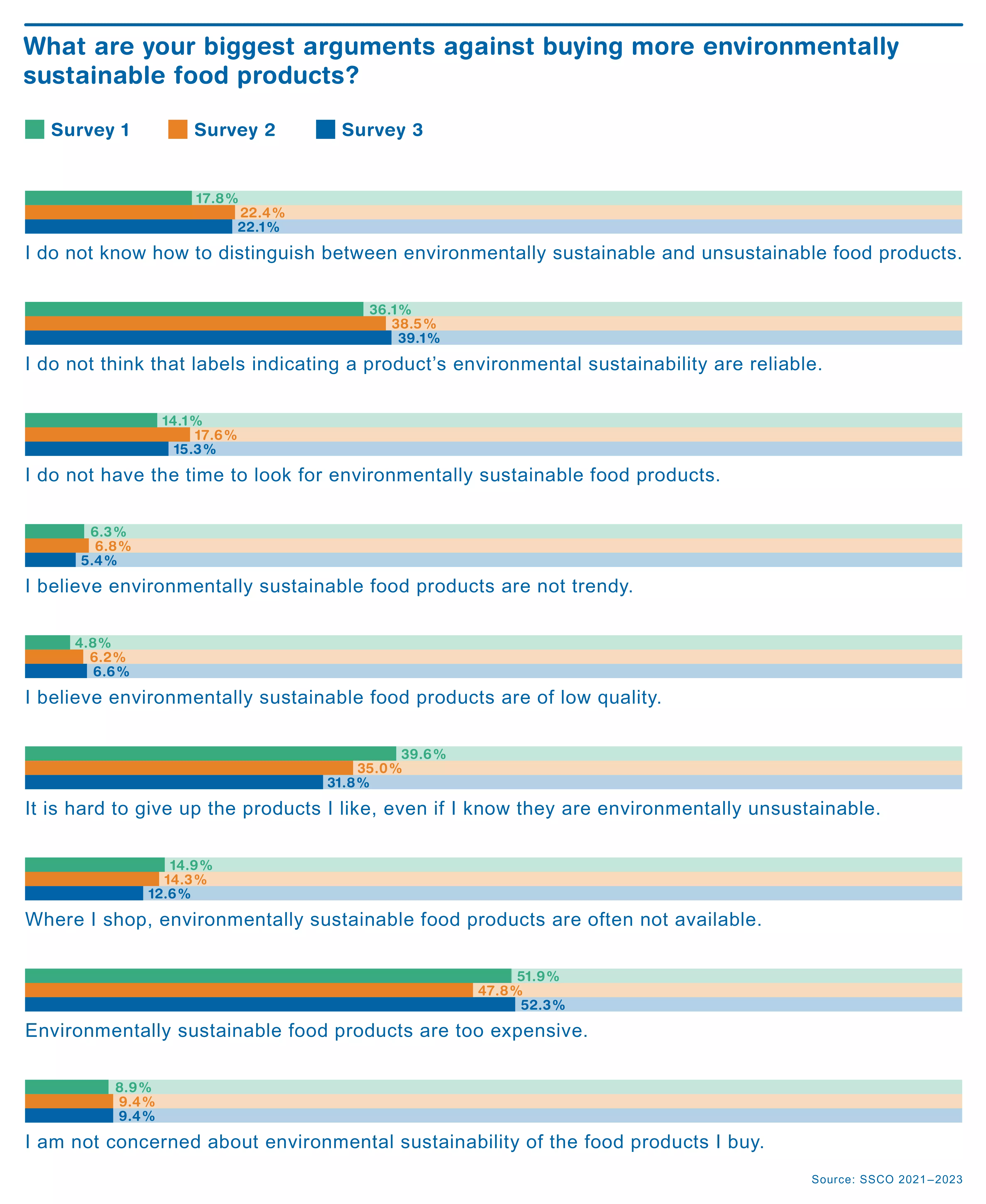Context is Crucial for Sustainable Purchasing Decisions
The Swiss population is increasingly buying second-hand clothing and electronic devices. Despite this, sustainable alternatives often miss out owing to the price, levels of consumer knowledge, or lack of transparency. According to a ZHAW study, it is easier to observe sustainable behavior when purchasing food than when buying textiles or consumer electronics.

Individual purchasing decisions have a significant impact on a society’s ecological footprint – and food, consumer electronics, and textiles are all relevant from an environmental impact perspective. As these consumption areas also offer individuals considerable scope for decision-making, they were examined as part of the Swiss Sustainable Consumption Observatory (SSCO). Between 2022 and 2023, around 1,200 people in all major language regions of Switzerland were surveyed three times at intervals of around nine months. The survey was conducted by an interdisciplinary research team from ZHAW, the University of Lausanne, and ETH Zurich as part of the “Sustainable Economy: Resource-Conserving, Future-Oriented, Innovative” National Research Program (NRP 73).
Price and lack of transparency are barriers
There are clear differences in perceived barriers to sustainable behavior in the three main consumption areas. Price is the principal obstacle to sustainable consumption in the food sector, with almost half of the respondents citing this as a factor. However, the situation is similar for clothing (mentioned by one-third of respondents). “Many of those surveyed also stated they have difficulty distinguishing between sustainable and non-sustainable products,” says Yann Blumer from the ZHAW School of Management and Law, summarizing the results. In the case of mobile devices, this uncertainty is evident in 45 percent of responses. In addition, participants in all three consumption areas said that a lack of trust in labels makes sustainable choices difficult.
There are slight differences between the genders in terms of sustainable behavior. For example, women are more willing to buy second-hand mobile devices or clothes and to pass used items on when they are no longer needed. The study also confirms that the decision-making context varies depending on the purchase. While around half of all clothing and mobile device purchases are made online, groceries are almost exclusively bought in-store (90 percent).
“We don’t see any major variations in the three surveys conducted between 2022 and 2023, either in terms of consumer behavior or attitudes,” says Blumer. Over time, there has only been a trend towards greater acceptance of second-hand clothing and used mobile devices.
Knowledge is essential for sustainable consumption
Knowledge and environmental awareness in the consumer areas of food, electronics, and clothing appear to vary. “While many people know how they can be more sustainable when buying food, many are not aware of what sustainability means when it comes to clothing and electronics,” explains Swen Kühne from the ZHAW School of Applied Psychology. The researchers see this as a helpful orientation for politicians and companies committed to more sustainable consumption patterns. Standardized information and labels can create transparency here.
Decision-making context is crucial
Overall, the ZHAW study makes it clear that many consumers consider sustainability issues in their daily purchasing decisions. However, whether they act effectively and sustainably depends heavily on the decision-making situation. The decisive factor is that sustainable choices must not be significantly more expensive or complex than less sustainable alternatives. Consumers must also be able to identify sustainable options clearly and reliably.
Contact
- Dr. Swen Kühne, ZHAW School of Applied Psychology, phone +41 (0)58 934 84 80, email swen.kuehne@zhaw.ch
- Dr. Yann Blumer, ZHAW School of Management and Law, phone +41 (0)58 934 46 86, email yann.blumer@zhaw.ch
- Valerie Hosp, Communications, ZHAW School of Management and Law, phone +41 (0)58 934 40 68, email valerie.hosp@zhaw.ch
- Nina Aemisegger, Communications, ZHAW School of Applied Psychology, phone +41 (0)58 934 80 35, email nina.aemisegger@zhaw.ch
